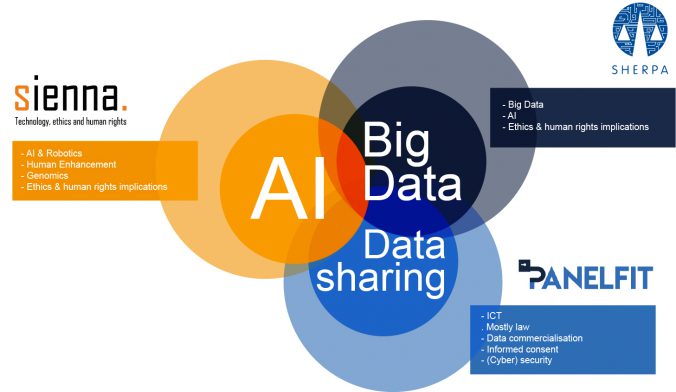 Do you use Google Maps to navigate in a new city? Ask Siri, Alexa or OK Google to play your favourite song? To help you find something on Amazon? To read a text message from a friend while you are driving your car? Perhaps your car is fitted with a semi-autonomous adaptive cruise control system… If any software or machine is going to perform in any autonomous way, it needs to collect data. About you, where you are going, what songs you like, your shopping habits, who your friends are and what you talk about. This begs the question: are we willing to give up part of our privacy and personal liberty to enjoy the benefits technology offers.
Do you use Google Maps to navigate in a new city? Ask Siri, Alexa or OK Google to play your favourite song? To help you find something on Amazon? To read a text message from a friend while you are driving your car? Perhaps your car is fitted with a semi-autonomous adaptive cruise control system… If any software or machine is going to perform in any autonomous way, it needs to collect data. About you, where you are going, what songs you like, your shopping habits, who your friends are and what you talk about. This begs the question: are we willing to give up part of our privacy and personal liberty to enjoy the benefits technology offers.
It is difficult to predict the consequences of developing and using new technology. Policymakers struggle to assess the ethical, legal and human rights impacts of using different kinds of IT systems. In research, in industry and our homes. Good policy should be helpful for everyone that holds a stake. We might want it to protect ethical values and human rights, make research and development possible, allow technology transfer from academia to industry, make sure both large and smaller companies can develop their business, and make sure that there is social acceptance for technological development.
The European Union is serious about developing policy on the basis of sound research, rigorous empirical data and wide stakeholder consultation. In recent years, the Horizon2020 programme has invested € 10 million in three projects looking at the ethics and human rights implications of emerging digital technologies: PANELFIT, SHERPA and SIENNA.
The first project, PANELFIT (which is short for Participatory Approaches to a New Ethical and Legal Framework for ICT), will develop guidelines on the ethical and legal issues of ICT research and innovation. The second, SHERPA (stands for Shaping the ethical dimensions of Smart Information Systems (SIS) – A European Perspective), will develop tools to identify and address the ethical dimensions of smart information systems (SIS), which is the combination of artificial intelligence (AI) and big data analytics. SIENNA (short for Stakeholder-informed ethics for new technologies with high socio-economic and human rights impact), will develop research ethics protocols, professional ethical codes, and better ethical and legal frameworks for AI and robotics, human enhancement technologies, and human genomics.

All three projects involve experts, publics and stakeholders to co-create outputs, in different ways. They also support the European Union’s vision of Responsible Research and Innovation (RRI). SIENNA, SHERPA and PANELFIT recently published an editorial in the Orbit Journal, inviting stakeholders and publics to engage with the projects and contribute to the work.
Want to read more? Rowena Rodrigues and Anaïs Resseguier have written about some of the issues raised by the use of artificial intelligence on Ethics Dialogues (The underdog in the AI and ethical debate: human autonomy), and you can find out more about the SIENNA project in a previous post on the Ethics Blog (Ethics, human rights and responsible innovation).
Want to know more about the collaboration between SIENNA, SHERPA and PANELFIT? Read the editorial in Orbit (Setting future ethical standards for ICT, Big Data, AI and robotics: The contribution of three European Projects), or watch a video from our joint webinar on May 20, 2019 on YouTube (SIENNA, SHERPA, PANELFIT: Setting future ethical standards for ICT, Big Data, SIS, AI & Robotics).
Want to know how SIENNA views the ethical impacts of AI and robotics? Download infographic (pdf) and read our state-of-the-art review for AI & robotics (deliverable report).

![]()



Hi! This post was so interesting and very well written! Couldn’t get any better and loved every single bit? I was wondering if you could checkout my new piece on ARTIFICIAL INTELLIGENCE & JOBS OF THE PAST!And I would really appreciate it if you could comment some feedback to improve the writing style. Looking forward to hearing from you. – Kiran
https://kiranninprogress.wordpress.com/2019/12/04/artificial-intelligence-jobs-of-the-past/
Thank you Kiran! Looking forward to reading your post. If you are interested in this topic I can recommend two other blog posts from researchers in SIENNA, The underdog in the AI and ethical debate: human autonomy (https://www.ethicsdialogues.eu/2019/06/12/the-underdog-in-the-ai-ethical-and-legal-debate-human-autonomy/) by Rowena Rodrigues and Anaïs Resseguier, and Harnessing existing human rights jurisprudence to guide AI (https://digitalfreedomfund.org/harnessing-existing-human-rights-jurisprudence-to-guide-ai/) by Zuzana Warso.